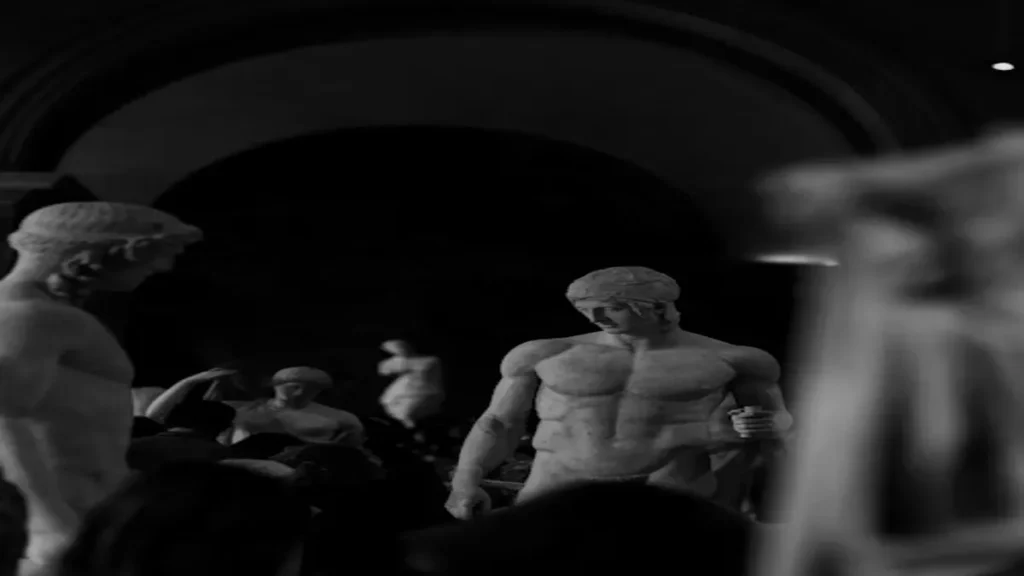If you searched “Cửu Tinh Bá Thể Quyết,” you’re likely looking for more than just a translation. You want to know what it is, why readers across Asia discuss it with such devotion, and how it stands out among thousands of cultivation sagas. Within the first 100 words, here’s your clear answer: Cửu Tinh Bá Thể Quyết, translated roughly as Nine Star Tyrant Body Art, is a Chinese xianxia (immortal hero) web novel that blends cosmic martial philosophy, destiny, and rebellion into a sprawling saga of growth and defiance. It tells of mortals who harness the essence of nine stars to shatter celestial limits — an allegory of discipline, loyalty, and transcendence. This article explores its world, themes, characters, and cultural impact in the signature depth of a long-form feature.
Origins and Background
The novel Cửu Tinh Bá Thể Quyết first appeared in the golden era of Chinese web literature, when platforms like Qidian and 17k fostered serialized online storytelling. It belongs to the genre of xianxia, where characters seek immortality through spiritual cultivation, martial mastery, and moral trials. Its Vietnamese title spread through fan translations and digital reading communities in the late 2010s, reaching a devoted audience of readers drawn to its relentless pace, poetic imagery, and moral complexity.
While most xianxia stories follow predictable arcs of revenge and power, this work stands apart for its balance of cosmic symbolism and emotional realism. It frames martial cultivation not as blind pursuit of strength, but as a dialogue with the universe — one that questions whether dominance over others can coexist with inner peace.
“The stars in this story aren’t distant; they’re mirrors. Each star burns with a human flaw that must be conquered.”
The Title and Its Symbolism
“Cửu Tinh Bá Thể Quyết” literally translates to “Nine Stars Tyrant Body Art.” Each of the nine stars represents an aspect of cosmic power corresponding to a realm of spiritual growth. The “Tyrant Body” symbolizes the ideal martial vessel — the human form made divine through discipline.
The Nine Stars Represent:
- Courage – the first spark that ignites the cultivation path.
- Endurance – the ability to withstand cosmic tribulation.
- Wisdom – understanding the harmony between heaven and self.
- Justice – upholding moral order in chaos.
- Faith – belief in destiny beyond visible power.
- Mercy – the restraint of strength.
- Resolve – unbending purpose through hardship.
- Rebellion – the courage to defy celestial law.
- Unity – merging all elements into transcendence.
Each cultivation stage is both a battle and a meditation, connecting martial progress with ethical growth — a balance rarely achieved in modern power fantasies.
Central Characters
At the heart of Cửu Tinh Bá Thể Quyết lies its protagonist — Long Chen, a gifted but rebellious cultivator. His story mirrors the archetype of the outcast genius: underestimated, scorned by elites, yet destined to rewrite cosmic laws.
Major Characters Overview
| Character | Role | Defining Trait | Narrative Symbolism |
|---|---|---|---|
| Long Chen | Protagonist | Defiant brilliance | The mortal who challenges the heavens |
| Meng Qi | Companion | Intelligence and grace | Balance between logic and emotion |
| Tang Wan-er | Ally and rival | Pride and loyalty | The duality of power and vulnerability |
| Guo Ran | Comrade | Craftsmanship and humor | Innovation amid tradition |
| Evil Dao Sovereign | Antagonist | Corrupted ambition | The shadow of divine arrogance |
Their relationships are written less as romances and more as philosophical collisions — testing loyalty, love, and ideology. The dialogue-driven character arcs make readers confront questions of fate and moral responsibility, giving emotional weight to what might otherwise be just martial spectacle.
“Long Chen doesn’t fight for immortality; he fights so mortality itself can have meaning.”
The Cultivation System: Power, Philosophy, and Pain
The cultivation method in Cửu Tinh Bá Thể Quyết is complex, multi-layered, and cosmic in scale. Unlike simpler “level-up” systems, this novel ties advancement to both physical transformation and moral awakening. Each star corresponds to an energy resonance within the body, refined through techniques collectively known as the Tyrant Body Art.
Key Concepts of the Tyrant Body Art
- Astral Resonance: The cultivator aligns internal energy channels with the frequencies of celestial stars.
- Essence Absorption: Drawing universal qi through nine meridian gates.
- Body Tempering: Forging the flesh through divine fire and lightning tribulations.
- Soul Integration: Merging consciousness with cosmic law, allowing one to manipulate elemental forces.
- Celestial Awakening: The ultimate realm — where one becomes part of the starry sky, neither god nor man.
This system marries mythic imagery with meticulous logic, giving readers a sense of both mysticism and realism. The process is brutal, spiritual, and symbolic — a reminder that enlightenment often demands the endurance of suffering.
Themes: Defiance, Destiny, and Brotherhood
Every great xianxia novel rests on themes that transcend its genre. Cửu Tinh Bá Thể Quyết uses martial ascension as metaphor for societal rebellion and human resilience.
1. Defiance Against Heaven
The protagonist’s defiance isn’t arrogance — it’s principle. In this universe, “Heaven” represents rigid fate. To defy heaven is to claim agency over one’s narrative.
2. Brotherhood and Loyalty
Friendship is treated as sacred. Long Chen’s bond with his comrades is the emotional backbone of the story. Their unity under constant threat mirrors real-world struggles where cooperation is strength.
3. Moral Duality
The novel resists easy binaries. Villains are often idealists turned bitter, and heroes question whether power corrupts even noble hearts.
4. Feminine Power
Unlike many xianxia works, female cultivators in this story are not just romantic counterparts — they embody intellect, strategy, and spiritual grace.
“To walk beside stars is easy; to remain human while doing so is the hardest cultivation of all.”
Writing Style and Narrative Tone
The prose of Cửu Tinh Bá Thể Quyết is vivid and rhythmic. Descriptions of battles resemble poetic storms, full of sound and motion. Emotional scenes are slow-burning, laced with introspection. Its tone moves between grandeur and intimacy — one paragraph describing galaxies shattering, the next exploring a quiet doubt inside the hero’s heart.
The author’s use of repetition and cyclical imagery reinforces the concept of cosmic order — every triumph hints at a coming test. This literary symmetry gives the novel a timeless, almost mythological resonance.
Popular Reception and Cultural Impact
By 2023, the story had reached international fandoms through translated editions and fan-subbed audiobooks. Online communities across Vietnam, Indonesia, and the Philippines discussed character arcs, power rankings, and moral symbolism.
Why Readers Connect Deeply
- Emotional Consistency: Long Chen’s emotions evolve naturally with his journey.
- Moral Weight: Every battle carries consequence — victory is never free.
- Philosophical Depth: Readers find life lessons woven into celestial metaphors.
- Escapism with Reflection: It offers fantasy yet mirrors human ambition and regret.
“We don’t read Cửu Tinh Bá Thể Quyết to escape our world; we read it to recognize it among the stars.”
The novel’s influence extends to mobile games, fan comics, and role-playing communities. It introduced a distinctive blend of martial theology — where cultivation is both a rebellion and a prayer.
Comparative Context: Standing Among Giants
Within the broader xianxia canon, Cửu Tinh Bá Thể Quyết sits alongside classics like I Shall Seal the Heavens, Against the Gods, and Desolate Era. Yet it distinguishes itself by merging heroic fatalism with cosmic scale.
Table: Comparative Snapshot of Major Xianxia Works
| Title | Central Concept | Tone | Defining Feature |
|---|---|---|---|
| I Shall Seal the Heavens | Karma and identity | Philosophical | Fate rewritten through compassion |
| Against the Gods | Revenge and destiny | Dramatic | Power through reincarnation |
| Desolate Era | Creation cycles | Epic | Balance between chaos and law |
| Cửu Tinh Bá Thể Quyết | Celestial rebellion | Inspirational | Cosmic morality fused with brotherhood |
Readers drawn to high-concept moral epics find this novel uniquely rewarding: it’s action-driven yet emotionally literate, philosophical yet grounded in friendship and duty.
The Nine Realms of Progression
To understand the inner structure of the novel, one must know its nine-tier cultivation path — each stage symbolizing an inner transformation.
The Nine Realms of the Tyrant Body
- Star Awakening Realm: Sensing the first celestial pulse.
- Body Refining Realm: Hardening flesh and bone through astral resonance.
- Qi Condensation Realm: Channeling inner essence into tangible power.
- Soul Mirror Realm: Reflecting the self’s impurities through meditation.
- Heaven Defiance Realm: Rejecting imposed destiny.
- Cosmic Fusion Realm: Aligning one’s essence with planetary qi.
- Void Traversal Realm: Traveling through dimensional rifts.
- Divine Will Realm: Commanding cosmic principles directly.
- Eternal Convergence Realm: Becoming a living star — a symbol, not merely a being.
Each realm introduces philosophical paradoxes: to gain strength, one must surrender attachment; to defeat enemies, one must master compassion.
Symbolism and Philosophy
The recurring motif of nine stars carries numerological significance. In Chinese cosmology, nine is the number of completion and celestial authority. Yet here, it also means the final boundary — implying that mastery is not perfection but acceptance.
The novel critiques blind ambition. Power without purpose is shown as destructive, echoing Buddhist and Daoist ethics. Long Chen’s journey evolves from anger to empathy, from rebellion to leadership. The stars serve as milestones of inner clarity, not trophies.
Core Philosophical Ideas
- Power is Responsibility: The higher the cultivation, the greater the moral burden.
- Fate is Flexible: Heaven’s will is an invitation, not a command.
- Brotherhood is Salvation: No one ascends alone; collective strength sustains individuality.
- Mortality as Beauty: To remain kind while pursuing godhood defines true mastery.
Reader Experience and Emotional Arc
What keeps readers returning for thousands of chapters is emotional rhythm. The novel alternates between large-scale wars and quiet reflections — maintaining a cadence that mirrors human life.
Emotional Highlights
- Long Chen’s first rebellion against a celestial sect.
- The loss of comrades during the Seven Tribulation War.
- The reunion scene with Tang Wan-er, which redefines loyalty.
- The transcendence sequence — not a victory, but a reconciliation with imperfection.
These moments turn spectacle into sentiment, ensuring that behind every lightning strike and galaxy collapse lies a heartbeat worth following.
Literary Style: Between Myth and Modernity
Though set in a mythic universe, the novel employs contemporary pacing and humor. Banter among characters balances its solemn themes. The mix of archaic diction and colloquial dialogue keeps readers grounded — a hallmark of modern xianxia writing.
Stylistically, its English translations maintain that rhythm: elegant yet accessible, epic yet intimate. The writing feels cinematic, alternating between panoramic battlefields and whispered introspections.
Influence on Modern Storytelling
Beyond literature, Cửu Tinh Bá Thể Quyết inspired numerous adaptations: mobile RPGs, motion comics, and animated series proposals. Its narrative structure influenced a generation of amateur writers who mimic its balance of philosophy and ferocity.
Broader Cultural Echoes
- Art: Fan illustrators reimagined star sequences as constellations of moral virtues.
- Music: Chinese composers wrote orchestral pieces evoking each cultivation realm.
- Gaming: RPG developers integrated its energy system into gameplay mechanics.
The story also found new life in academic circles analyzing how digital serial fiction expresses Eastern metaphysics for global audiences.
Lessons and Legacy
Cửu Tinh Bá Thể Quyết endures because it satisfies both the heart and the intellect. It tells readers that power is hollow without empathy, and destiny meaningless without choice. Its mix of adventure and introspection makes it timeless.
“The greatest tyrant is not one who conquers others, but one who conquers himself.”
Its real triumph is not in the hero’s ascension but in his understanding that divinity means embracing imperfection. That paradox — strength through vulnerability — keeps readers returning to the text even after thousands of pages.
Conclusion
To read Cửu Tinh Bá Thể Quyết is to step into a galaxy where stars are both swords and teachers. It’s a journey that fuses cosmic grandeur with personal struggle, balancing spectacle with soul. Whether you approach it as fantasy or philosophy, it offers insight into the oldest human question: How far will we go to become more than ourselves, without losing what makes us human?
In that sense, the novel’s “Nine Stars” are not celestial bodies but moral compasses — guiding readers through darkness toward light, reminding us that true cultivation lies not in conquering the universe, but in understanding it.







